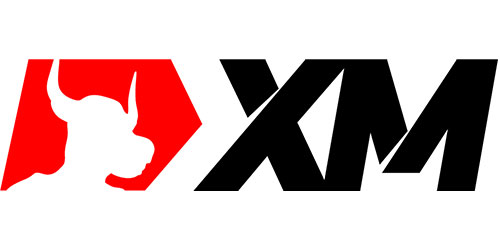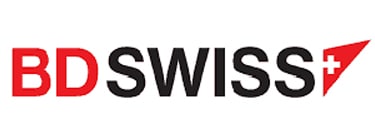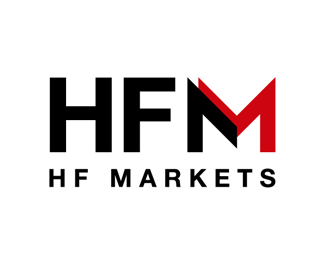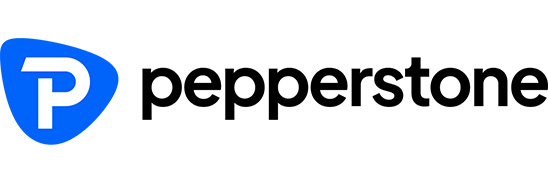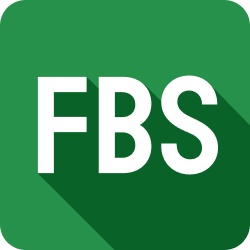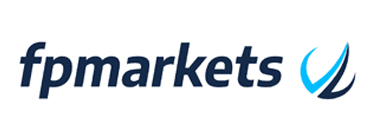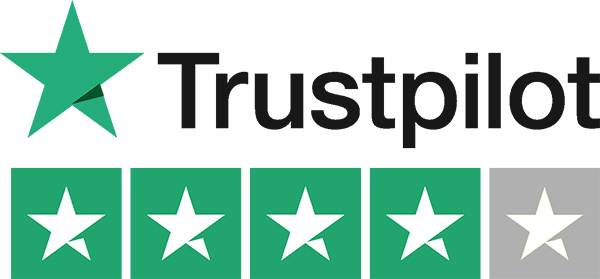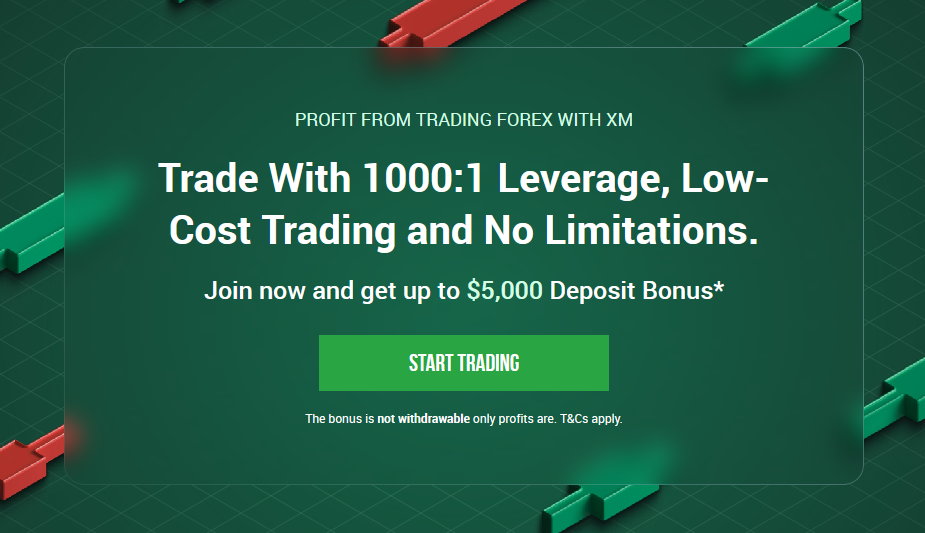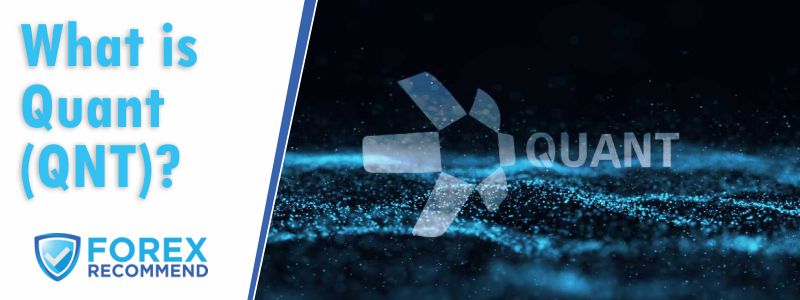
Since the inception of blockchain and distributed ledger technology, inventors have discovered applications in every sector. However, there has been an issue with these projects' smooth compatibility. Quant was intended to bridge the divide between “distinct” blockchains.
Top 10 Forex Brokers
Broker
Rating
Regulators
Min Deposit
Leverage
Website
Top 10 Forex Brokers
Broker
Rating
Min Deposit
Leverage
Overledger, Quant's operating system, was created to operate as a bridge for any blockchain-based application to connect to all other blockchains. Additionally, it connects an application to other apps that are part of the same blockchain ecosystem, such as Ethereum.
Rather than allowing several blockchain interactions, Quant establishes distinct layers that allow applications to communicate at various levels. Quant is composed of many layers for transactions, messaging, filtering, and sorting, as well as a program for sharing and referencing identical information across apps.
Quant App Store enables the reading and monitoring of transactions across various ledgers. Developers may use Overledger to create smart contracts for several chains, even some that do not support them, such as Bitcoin. Additionally, developers may utilize the store to construct and distribute multi-chain apps (MApps).
| Component | Quant (QNT) |
| Technologies | Overledger Network, Multi-Chain Applications (MApps) |
| Market Capitalization | $2.29 Billion+ |
| Open-Source | Yes |
| Consensus Mechanism | – |
| Smart Contracts | Yes |
| Founders/Authors | Gilbert Verdian, Dr Paolo Tasca |
| Launch Date | 2018 |
| Circulating Supply of Coins | 12,072,738 QNT |
| Maximum Coin Supply | 14,612,492 QNT |
| Mining-based Coin? | No |
| Is Quant a Stablecoin? | No |
| Does Quant have a burn rate? | Yes |
| Does Quant have a Whitepaper? | Yes, the white paper can be viewed here |
Evolution and Development of Quant
Gilbert Verdian established Quant Network in 2015, and its native cryptocurrency, QNT, was introduced soon afterwards. The Quant system was formed out of an intense desire to improve the efficiency of global information sharing.
Verdian became aware of this issue while consulting in the UK and, subsequently, later, the Australian government. He recognized the potential use of distributed ledger technology (DLT) in resolving the issues he was encountering.
By incorporating Overledger features into the Quant protocol, it gained access to the Bitcoin, Ethereum, and Ripple ledgers. The Quant protocol gets the closest to resolving the blockchain industry's interoperability difficulties. It is employed in an Overledger computer system as a payment validator token.
One of the platform's ultimate aims is to enable smooth interoperability, therefore distributing the fragmented world of distributed ledger technology equally. Subsequently, the Quant protocol is sometimes referred to as an “operating system/software” for all blockchains.
What makes Quant unique?
The Overledger team designed an architecture that should facilitate both interoperability and scale. The design was influenced by TCP/IP models used in communication networks.
To meet the platform's aims, the developers chose to organize it into layers that execute specific duties, providing the Overledger with the following elements.
Transaction Layer handles ledger-based transaction storage. It contains all activities necessary to obtain consensus in various blockchain domains. Putting all linked procedures in one layer simplifies the process.
However, transactions conducted on a blockchain are only valid in that domain and cannot be used in other ledgers. So this layer has a mix of diversified and isolated ledgers.
The Messaging Layer deals with all pertinent data from the ledgers, involving Smart contract data, metadata, and all other transaction data.
In the case of metadata, the appended strings will typically indicate the payload digest of out-of-chain messages. This layer also stores all transaction data and message digests between apps.
The layer that is concerned with Filtering and Sorting also handles messages, especially those that are derived from transaction data. Messages that are referenced by a hash and sent out-of-chain are ordered and filtered on this layer.
This layer also connects messages from the Messaging Layer. This layer also verifies metadata out-of-chain communications. The validation engine verifies the transaction data against the application criteria.
The Application Layer – valid messages with the necessary format and signatures could change the application's state. Programs can exchange messages or refer to messages from other applications.
References to ledger transactions using message digests employ unique hash pointers. These pointers relate to a cryptographic hash's storage location. They may also be used to identify a transaction in a database and certify its status as unaltered.
What are the main uses for Quant?
QNT coin is a Quant blockchain currency that grants digital access to an app or service. The QNT coins are then used to pay access fees in fiat money. For example, developers and businesses pay monthly consumption fees to the Quant Treasury account, which uses QNT tokens.
The access fee is determined by the number of tokens created as well as a predetermined amount in fiat money. For example, developers and businesses contribute $10 monthly to the Quant Treasury in QNT tokens.
As the number of users and demand for QNT grows, more QNT tokens are created and circulated. QNT coin is a Quant blockchain currency that grants digital access to an app or service.
The QNT coins are then used to pay access fees in fiat money. For example, developers and businesses pay monthly consumption fees to the Quant Treasury account, which uses QNT tokens.
The access fee is determined by the number of tokens created as well as a predetermined amount in fiat money. For example, developers and businesses contribute $10 monthly to the Quant Treasury in QNT tokens.
As the number of users and demand for QNT grows, more QNT tokens are created and circulated.
What is the future potential for Quant?
Quant pricing has a bright future in terms of value but also has a high level of risk and volatility.
With the current advancements inside the QNT ecosystem and the broader cryptocurrency market, users might see QNT achieve new levels.
Price analysis on Quant
Quant was initially launched in 2018, and its price analysis over the past four years are as follows:
| 2018 | 2019 | 2020 | 2021 to date | |
| QNT Price High | $3.24 | $14.29 | $16.92 | $393.54 |
| QNT Price Low | $0.2 | $1.84 | $1.55 | $11.66 |
| Market Cap | $30.98M | $172.57M | $204.26M | $4.75B |
Price prediction on Quant
The maximum predicted price is $89.114; the least expected price is $60.598. The anticipated QNT price for the end of 2023 is $71.291. By the end of January 2023, it should easily range between $110.42 and 150.50, making it a sound long-term investment.
It may be affected and corrected down to support levels, but bulls will return, and by 2024, its price may have soared to an all-time high of $430.88, compelling investors to purchase Quant.
Which wallets are the best option for storing Quant?
The following wallets are the best options for QNT:
- Ledger or Trezor Hardware Wallets
- Trust Wallet
- Atomic Wallet
- MyEtherWallet
- Freewallet
1. Ledger or Trezor Hardware Wallets: Quant (QNT) is best stored in a secure hardware wallet such as those offered by Ledger or Trezor.
Hardware wallets use the highest level of encryption to safeguard your assets from sophisticated network assaults or even basic phishing scams that users of software or website wallets may experience.
2. Trust Wallet: Trust Wallet, an official Binance wallet, is a popular software wallet among retail traders and investors and is an excellent location to store Quantum Tokens (QNT).
For users who are new to cryptocurrencies or just searching for a safe way to keep their QNT, a mobile wallet may be a good alternative owing to the ease, security, and backup options it provides.
3. Atomic Wallet: Quant (QNT) may be kept in Atomic Wallet, a crypto wallet that is accessible on Android, iOS, and a variety of PC platforms. Atomic Wallet is a multi-currency wallet that supports over 300 cryptocurrencies, including QNT and other ERC20 and BEP2 tokens.
Additionally, Atomic Wallet has Atomic Swaps and a built-in Exchange, which users may use to trade between any supported assets, including Quant.
4. MyEtherWallet: Additionally, users may keep their Quant (QNT) in one of the most reputable, proven, and tested wallets available; MyEtherWallet.
All ERC20 tokens, including Quant (QNT), may be saved on the Ethereum platform using MyEtherWallet, which requires no clients or software to be downloaded.
5. Freewallet: Freewallet is a highly customizable wallet platform that adds much-needed simplicity without sacrificing security requirements.
The UI is straightforward to comprehend. Each procedure has been developed with the user in mind and can be done in a matter of minutes.
Where can you buy Quant?
Quant can be bought, sold, and traded on some of the following largest cryptocurrency exchanges:
- BitYard
- Mandala Exchange
- ByBit
- KuCoin
- Kyber Network
1. BitYard: BitYard is a well-known and major bitcoin contract exchange around the globe. BitYard is based in Singapore and provides simple, quick, and secure bitcoin asset trading in over 150 countries.
BitYard is governed by the American Money Services Business, the Singaporean Accounting and Corporate Regulatory Authority (ACRA), and the Estonian MTR.
| PROS | CONS |
| BitYard's interface is user-friendly and simple | A limited selection of crypto assets that can be traded |
| The exchange provides a fast trading engine that can process up to a million transactions per second | Withdrawals cannot be done using fiat currencies |
| Traders can choose between several major digital currencies for deposits | |
| There is a KYC procedure that must be completed for deposits | |
| There is a demo account offered | |
| The platform offers 16 coins that can be traded |
2. Mandala Exchange: Mandala is a cryptocurrency exchange that is hosted by Binance Cloud and has a liquidity pool, making it one of a kind. The platform enables the purchase, sale, and trading of cryptocurrencies.
Users can easily open an account and begin trading on the Mandala exchange. Additionally, Mandala complies with all applicable legal standards and regulations while maintaining strict security procedures and transaction speeds.
| PROS | CONS |
| The exchange does not charge any deposit fees | There are only a few programs offered |
| The platform has a native cryptocurrency that can be used | The platform gives preference to the native token |
| The platform offers dedicated customer support | |
| The platform is beginner-friendly |
3. ByBit: ByBit is one of the most well-known bitcoin Futures trading exchanges on the market. Since its inception in 2018, the British Virgin Islands-based exchange has seen rapid development. It has over 2.5 million registered accounts worldwide and is rapidly expanding.
| PROS | CONS |
| ByBit is one of the top three derivatives exchanges according to its daily trading volume | There is a limited number of trading pairs available |
| The platform offers coin and USDT settled contracts | ByBit is not regulated |
| There is reduced risk associated with price manipulation and liquidation | |
| The platform offers high bonuses |
4. KuCoin: Established in 2017, KuCoin is a popular third-party crypto exchange trading platform that caters for traders and investors from around the world.
KuCoin has not experienced any notable issues in the past few years that it has been in operation. The exchange offers a user-friendly platform and an innovative Android and iOS app.
| PROS | CONS |
| The exchange offers anonymous trading without KYC | The exchange is known for having low 24-hour trading volume and low liquidity at times |
| The exchange is extremely secure | |
| There are several crypto assets offered |
5. Kyber Network: Kyber Network is an on-chain liquidity technology that links token ecosystems in real-time, seamlessly, and securely.
It enables companies to accept any token as payment and store it in their preferred wallet application (Vendors), to swap tokens in their wallet application (Wallets), to source liquidity and employ arbitrage programs (DApps) and to liquidate assets or balance token holdings.
| PROS | CONS |
| The network and platform is compatible with most DApps and protocols | There are high transaction costs involved |
| The platform offers businesses and consumers comprehensive solutions | The network lacks an intuitive UI |
| The network is freely available | |
| The protocol supports more than 70 different ERC-20 coins | |
| The network does not use order books but examines all reserves and returns to find the best prices | |
| Kyber is active in marketing products to consumers |
You can buy Quant safely from these cryptocurrency platforms.
Does Quant use coin burns?
Yes, in 2018, Quant burnt 9,545,765.950989192 QNT tokens.
What is Quant’s largest Competitor?
The largest competitor of Quant is QuillHash Technologies.
QuillHash Technologies is a startup that investigates and develops solutions based on blockchain, machine learning, artificial intelligence, and Internet of Things technologies.
What is the Staking Process involved with Quant?
To participate in staking on Quant, Gateway Operators must secure QNT (Stake) to operate inside the Overledger Network to participate in staking. The greater the staked amount, the more queries the gateway is authorized to process.
Staking is also essential to assist in the prioritization of Gateway operators when numerous gateways may transact the same resources. The Gateways having the most QNT staked with the Treasury will be prioritized by the algorithm to decide who will get the transaction request.
What can Quant smart contracts do?
In 2019, Quant published an Overledger Software Developer Kit (SDK) that is incorporated in the front end and allows applications to specify the rules for interacting with Overledger, such as how to add messages or read the result of a write to the many blockchains.
The SDK is free and open-source, and it is presently accessible in Java and JavaScript, intending to include Python and Ruby in the future.
Because Overledger is open source, the community may construct their unique version in their own programming language to determine how to interface with it.
Blockchain Overledger's Programmable Interface saves the rules established by the Decentralized Multi-Chain Applications (MApps) via the SDK and enables communication with the Overledger Operating system and the associated blockchains.
Optional Treaty Contracts, or just Treaty Contracts, are smart contracts that be operated off-chain for improved performance and allow smart contracts to be run across various blockchains.
Is Quant a Good Investment?
Reports from reputable analysts and crypto experts indicate that Quant crypto is a sound investment, particularly for those interested in a long-term approach/strategy.
In December, Quant showed a 40% rise over its six-month low of $98. The price of one QNT is predicted to reach $1,877 in 2026.
What is the supply and distribution of Quant?
The maximum number of QNT tokens available is 14,612,493 tokens. The QNT coins were divided as follows:
- During the ICO, 9.9 million QNT tokens were sold to the public
- 2.6 million QNT tokens were allocated to the business reserve to keep the project going
- 1.3 million QNT tokens were saved for the company founders
- 651,000 QNT tokens were distributed to the company advisers.
The token's current circulating supply is 12,072,738 QNT. The firm owns the remaining 2 million tokens. These tokens have been unlocked and can be sold or produced at any moment.
Is Quant a viable Alternative Coin?
Yes, Quant is a good alternative coin.
- Hacking – there is no record of any successful hacking to the blockchain or network.
- Security – Quant uses some of the most robust security technologies on the market.
- Technology – Quant uses innovative technologies, including Overledger Network, Multi-Chain Applications (MApps), and others.
- Future Uses – Because of its robust and unique technology, Quant has a bright future and an important role in real-world applications.
Any cryptocurrency that isn't Bitcoin is referred to as an altcoin.
What are the differences between Quant And Bitcoin?
Bitcoin is the largest cryptocurrency according to market capitalization and popularity. When comparing Quant and Bitcoin, it is important to note that Quant is presenting higher volatility than Bitcoin.
The market performance of Quant is much weaker than that of Bitcoin, and trading advice on Bitcoin is at a strong sell while Quant presents a cautious hold.
| Bitcoin | Quant | |
| Price change 20/21 | +400% | +1,380% |
| Market Cap | $800 Billion+ | $2.29 Billion+ |
| Past Hacks | None | None |
| Popularity | Very High | Low |
| Altcoin Rank | #1 – Original Crypto | #63 |
What are the differences between Quant and Ethereum?
Ethereum is the largest programmable blockchain in the crypto space, where developers can create smart contracts and DApps using Solidity. Thousands of apps have already been launched on Ethereum.
Ethereum has a higher price tag than Quant in addition to having a much larger market capitalization and available supply.
| Ethereum | Quant | |
| Price change 20/21 | +880% | +1,380% |
| Market Cap | $460 Billion+ | $2.29 Billion+ |
| Past Hacks | None | None |
| Popularity | Very High | Low |
| Altcoin Rank | #2 | #63 |
What are the differences between Quant and Dogecoin?
Dogecoin was launched in 2013 with the idea of being nothing more than a joke. However, Dogecoin has grown to become a popular crypto asset and medium of exchange, especially to tip content creators.
Dogecoin has more mentions than Quant when comparing social media platforms, and the hourly sentiment of DOGE is much higher than QNT.
| Dogecoin | Quant | |
| Price change 20/21 | +7,300% | +1,380% |
| Market Cap | $22 Billion+ | $2.29 Billion+ |
| Past Hacks | None | None |
| Popularity | High | Low |
| Altcoin Rank | #12 | #63 |
What are the differences between Quant and NFTs?
Nonfungible tokens (NFTs) are digital assets that each have a unique value, with no two NFTs holding the same characteristics or value as another. Quant, on the other hand, is fungible, which means that one QNT has the same value and characteristics as another QNT.
What is a hardware wallet?
One of the most popular kinds of cryptocurrency wallets is a hardware wallet. It uses a physical device (much like a USB device) that saves the user's private keys in offline storage or cold storage.
These keys are important pieces of data that are needed to approve outbound payments on the blockchain. Thus, they must be kept in a secure physical device.
Examples of hardware wallets include SafePal, Ledger, Trezor, CoolWallet, and more.
What is a software wallet?
A software wallet is no different than a software application or mobile app that is installed on a desktop computer or smartphone respectively. These are online wallets (also known as hot wallets) that require an Internet connection to function.
Some software wallet examples are Atomic Wallet, Mycelium, Trust Wallet, and several others.
What is Trust Wallet?
Trust Wallet is a cryptocurrency wallet application that enables you to securely trade several cryptocurrencies. The application generates a secure access key that protects digital assets from unauthorized access.
Additionally, it supports multi-coin transactions, allowing users to acquire and exchange hundreds of currencies and blockchain kinds. In addition, the wallet allows users to purchase coins directly using a credit card.
Trust Wallet is compatible with iOS and Android handheld platforms.
What is an online wallet?
An online wallet refers to a software application or a browser extension that connects users to their crypto assets via an Internet connection. These types of wallets cannot function offline, and this makes them extremely susceptible to cyberattacks.
Nowadays Best bitcoin wallet in 2023
What does scalable mean?
In blockchain technology, scalability refers to the number of transactions that a chain can validate and how quickly it can do so.
This can directly relate to the overall efficiency of a blockchain project or network. If a blockchain foregoes scalability in favour of security and decentralization, it may become prohibitively costly to use, as the Bitcoin and Ethereum blockchains do during periods of heavy demand.
Is it a good thing when blockchain projects are highly scalable?
Yes, it is a major advantage when blockchain projects are highly scalable.
Scalability is a barrier to broad adoption. Scalability is the ability of a blockchain to deliver a great user experience regardless of the number of users.
To achieve widespread market acceptance, the user experience must be outstanding, whether joining a blockchain network, engaging with a decentralized application (DApp), or breaking out of a centralized walled garden.
Thus, scalability is important for general acceptance. Furthermore, scalability is a method to provide equitable and accessible access to experiences. Operating costs decrease when technology grows beyond its critical mass requirement.
This decreases the participation barriers for users. Unscalable experiences that reach critical mass become exclusive. Participants with the lower perceived worth may be continually displaced by technology.
Table of Contents




